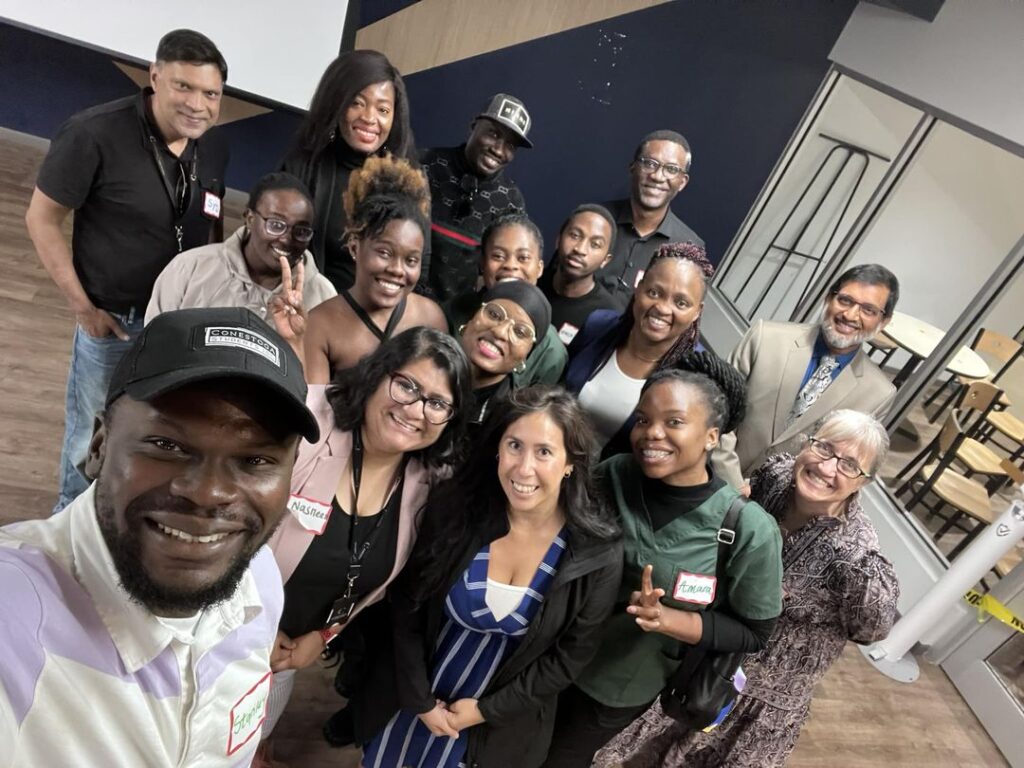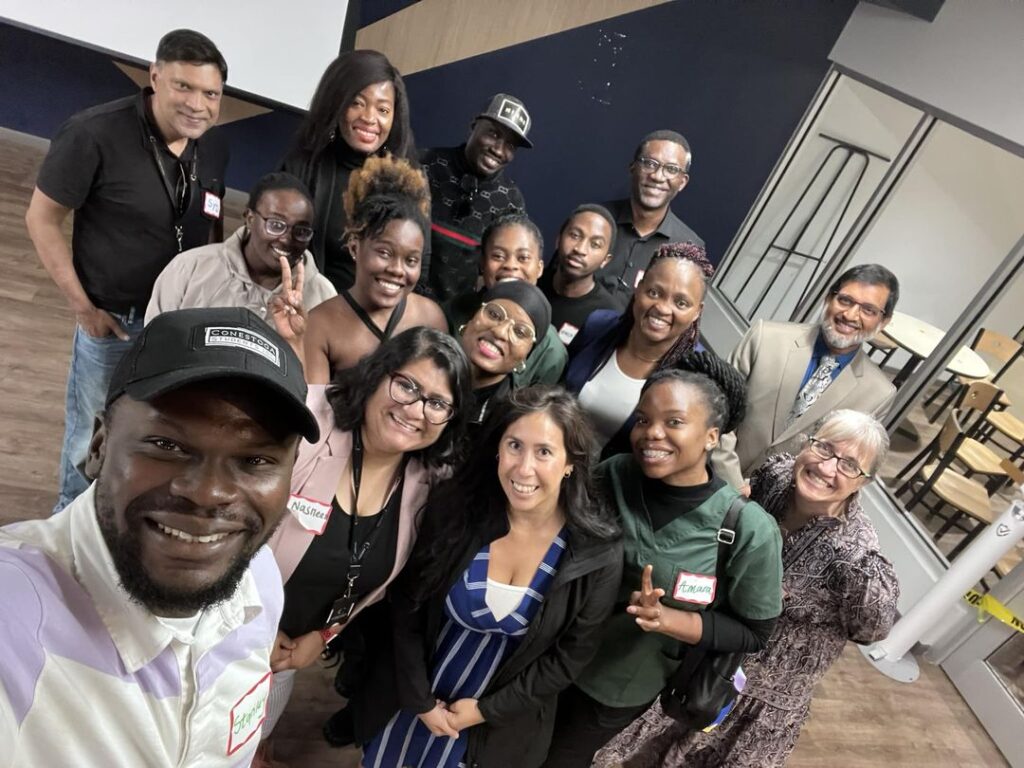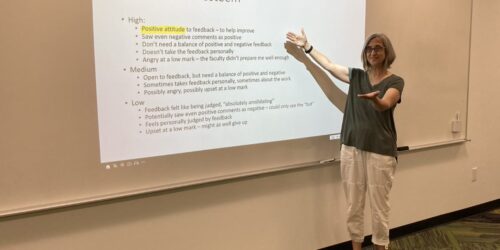
Experience of African International Students at Conestoga: What Students Say
Chioma Uwaneme (Work Study Student at T&L) & Dr. Nasreen Sultana (Consultant, T&L)
On 5 October 2023, Teaching and Learning hosted a Coordinator Learning Event at Doon Campus to learn about the African education system. A few African international students currently studying at Conestoga were invited to share their experiences with the coordinators. The event also included a talk by a guest speaker from Kenya, Dr. Judith Pete and a traditional African dinner.
This post summarizes some key questions students discussed at the event.
What one thing did you enjoy/like while in Canada so far?
Canada has offered us numerous impressive experiences since our arrival, such as the warm and helpful nature of people and their willingness to assist. We have learned about land acknowledgment, and we appreciate how Canadian Professors are teaching us to learn about Indigenous culture and communities.
What is one thing you would like us to know about your home country and/or culture?
We want to highlight some key aspects of our homeland and culture, such as the friendly and hospitable nature of our people, their interest in social gatherings, our diverse and multiethnic society, and the vast array of culinary delights. Africa has a diverse culture with various ethnicities, languages, and customs. But,
We may come from the same continent but speak different languages. Many of us use English to communicate with other Africans.
As an international student from an African country, what has made you feel most comfortable and included in our Conestoga classes?
As international students from African nations, we have experienced a strong sense of comfort and belonging within Conestoga classes for several compelling reasons. These factors encompass our professors’ supportive and empathetic nature, willingness to extend their assistance beyond academic matters, genuine concern for our adjustment to a new educational and cultural environment, dedication to fostering inclusivity, and open-minded approach.
What is one difference or similarity between your home country and Conestoga’s educational style and academic expectations?
The commonality between our home country’s educational approach and that of Conestoga is their shared commitment to the well-being and success of students. Nevertheless, the distinctions become evident in the following aspects:
– The student-centred education system
– The presence of resources
– Stress on original student work
– The incorporation of practical skills development via real-world simulations
– The relatively higher tuition fees
– The accessibility of advanced technology
Tell us about the assessments you experienced in your home country. How are they similar or different from assessments at Conestoga College?
The assessment systems in our home country and the Canadian educational system exhibit notable differences. In our home country, the primary assessment method relies heavily on two summative exams. This approach can discourage active class participation and incentivize rote memorization to pass exams, resulting in graduates who tend to be more theoretical. In contrast, at Conestoga, assessments take various forms, accommodating a range of skills, including practical tasks, quizzes, essays, group work, and reflective assignments. These assessments are broken down into smaller portions, offering diverse avenues for students to excel. In such a system, a diligent student could even pass a course well before the term concludes.

I found it fascinating to learn about our Nigerian Students in this session. The guest speaker was also amazing and shared a number of ways for us as educators to connect with Nigerian students.
Patty Gateman, Professor & Coordinator, School of Business
Students shared some of their concerns as well.
Being the Lone Student in the Class
One student shared that being the only one in the class who can’t participate when other students speak their first language is a very lonely and challenging experience. The student wished that faculty could be the ones to speak up about everyone using English.
Please see this post, where it is outlined that there should be a clear obligation on students to use only English where a class discussion includes folks who do not speak a shared first language and the chat on. Faculty are expected to establish clear guidelines for using English as the shared language in the classroom.
Difficulty in Choosing a Group
One student told how students were asked to choose their own groups in class, and he was always left out because his classmates only wanted to work in groups with students from India. He ended up doing group work on his own.
If you have a similar situation, please be proactive in forming the groups to help the students to form the groups. Having students choose their groups is not a good practice if students get left out. Faculty are also the managers of the class. So, managing the groups and helping students to be in the groups come under our role of classroom manager.
Feedback
General feedback is only helpful if students know what it means. One student asked for concrete examples to go with feedback, suggesting areas for improvement.
Think about giving examples of what to do. Many international Nigerian students may need more models and examples to know what a faculty may mean. For example, instead of telling them what they did not do, consider telling them what they could do to improve their work.
Flexibility in Extenuating Circumstances
One student recounted that he had come a week late due to circumstances outside his control, and there had already been a quiz worth 20% of his mark, which he was not allowed to make up.
We do not know if this story is correct as told, but faculty can demonstrate a little more flexibility with students arriving late to the country. These situations are different, and a little support from the faculty can be helpful for the students. Also, the best practices suggest avoiding high-stakes assessments in the first three weeks of the semester. You also can reach out to the program manager or chair if you are unsure what to do in these situations.
If you have challenges teaching international students, please contact teachingandlearning@conestogac.on.ca for support.






